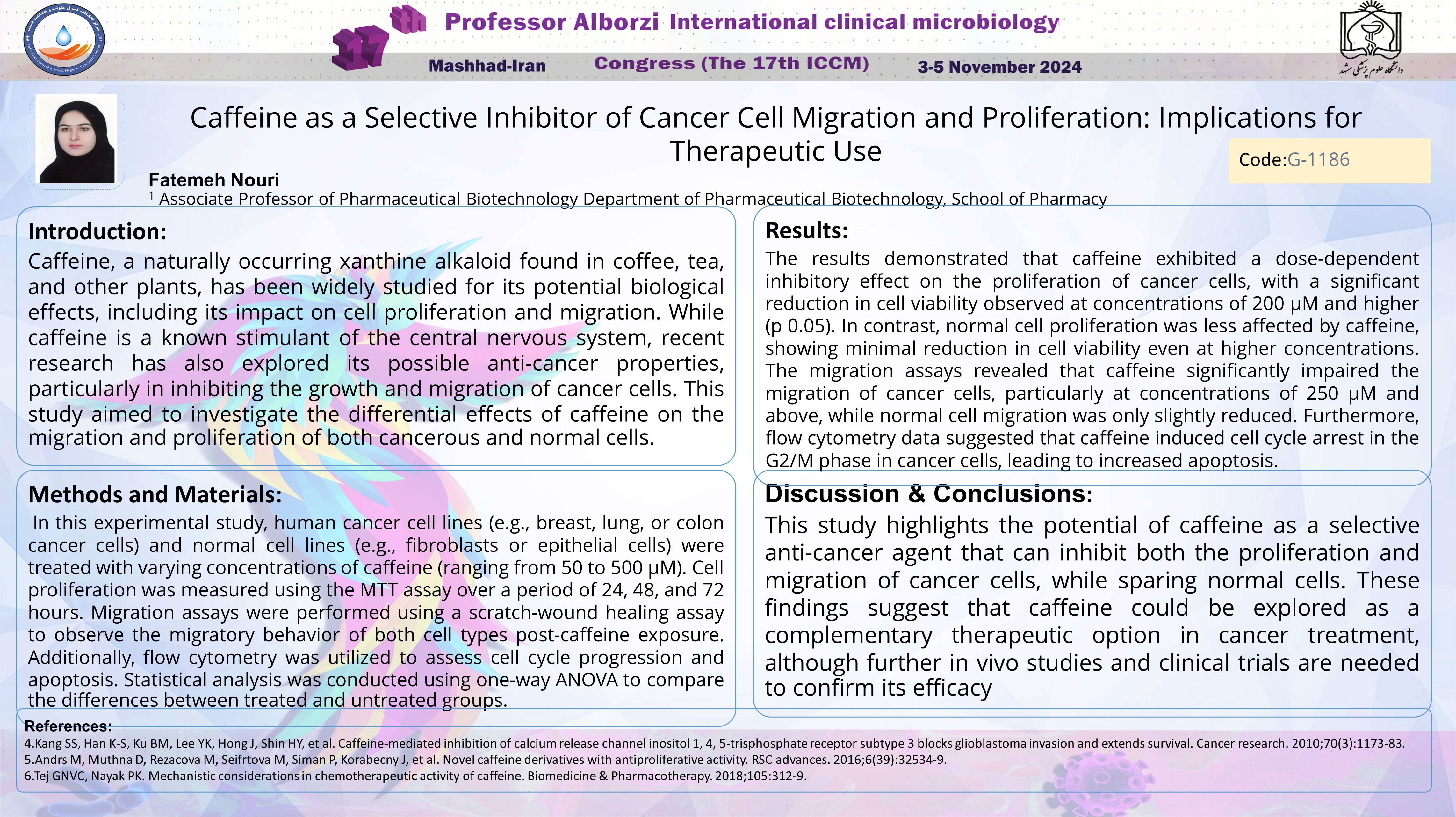کافئین به عنوان یک بازدارنده انتخابی مهاجرت و تکثیر سلول های سرطانی: پیامدهایی برای استفاده درمانی
کد: G-1186
نویسندگان: فاطمه نوری © ℗
زمان بندی: زمان بندی نشده!
دانلود: دانلود پوستر
خلاصه مقاله:
خلاصه مقاله
Abstract: Background: Caffeine, a naturally occurring xanthine alkaloid found in coffee, tea, and other plants, has been widely studied for its potential biological effects, including its impact on cell proliferation and migration. While caffeine is a known stimulant of the central nervous system, recent research has also explored its possible anti-cancer properties, particularly in inhibiting the growth and migration of cancer cells. This study aimed to investigate the differential effects of caffeine on the migration and proliferation of both cancerous and normal cells. Methods: In this experimental study, human cancer cell lines (e.g., breast, lung, or colon cancer cells) and normal cell lines (e.g., fibroblasts or epithelial cells) were treated with varying concentrations of caffeine (ranging from 50 to 500 µM). Cell proliferation was measured using the MTT assay over a period of 24, 48, and 72 hours. Migration assays were performed using a scratch-wound healing assay to observe the migratory behavior of both cell types post-caffeine exposure. Additionally, flow cytometry was utilized to assess cell cycle progression and apoptosis. Statistical analysis was conducted using one-way ANOVA to compare the differences between treated and untreated groups. Results: The results demonstrated that caffeine exhibited a dose-dependent inhibitory effect on the proliferation of cancer cells, with a significant reduction in cell viability observed at concentrations of 200 µM and higher (p 0.05). In contrast, normal cell proliferation was less affected by caffeine, showing minimal reduction in cell viability even at higher concentrations. The migration assays revealed that caffeine significantly impaired the migration of cancer cells, particularly at concentrations of 250 µM and above, while normal cell migration was only slightly reduced. Furthermore, flow cytometry data suggested that caffeine induced cell cycle arrest in the G2/M phase in cancer cells, leading to increased apoptosis. Conclusion: This study highlights the potential of caffeine as a selective anti-cancer agent that can inhibit both the proliferation and migration of cancer cells, while sparing normal cells. These findings suggest that caffeine could be explored as a complementary therapeutic option in cancer treatment, although further in vivo studies and clinical trials are needed to confirm its efficacy
کلمات کلیدی
Caffeine Cancer cell proliferation Cell migration Normal cells Apoptosis Anti-cancer therapy Selective cytotoxicity MTT assay
